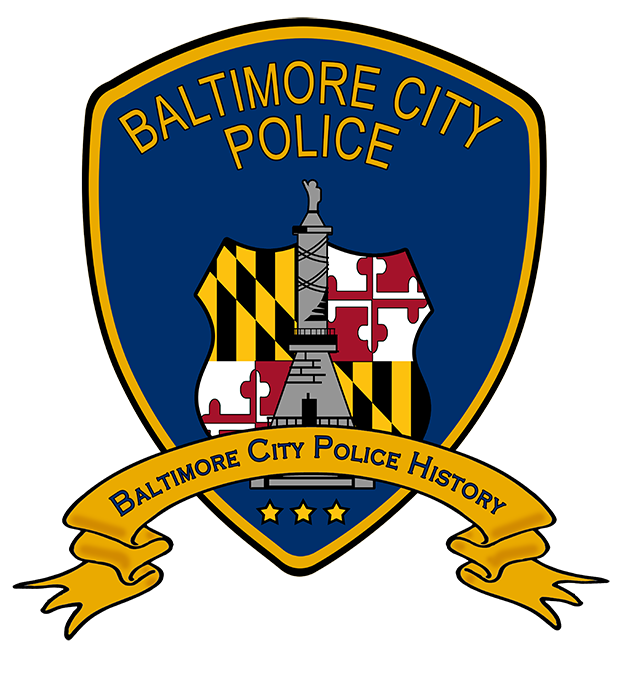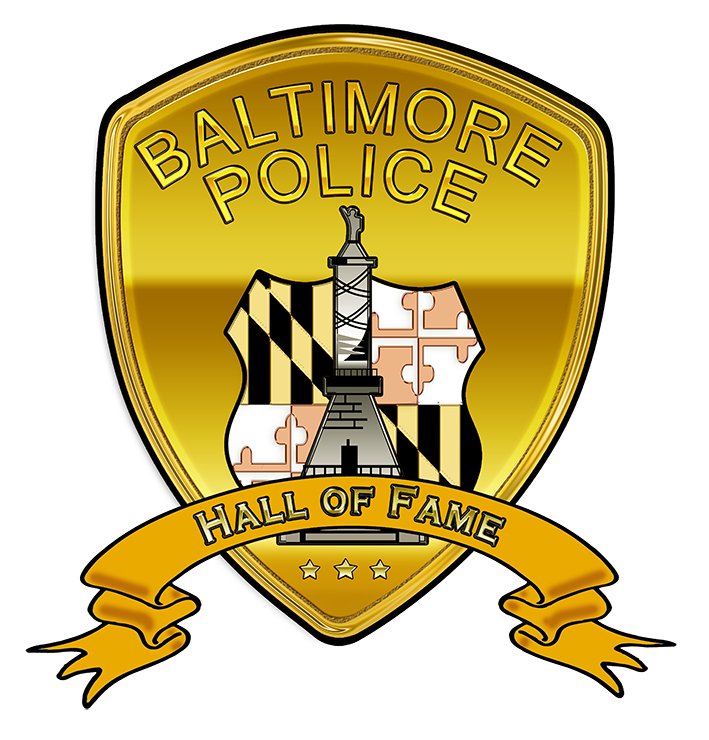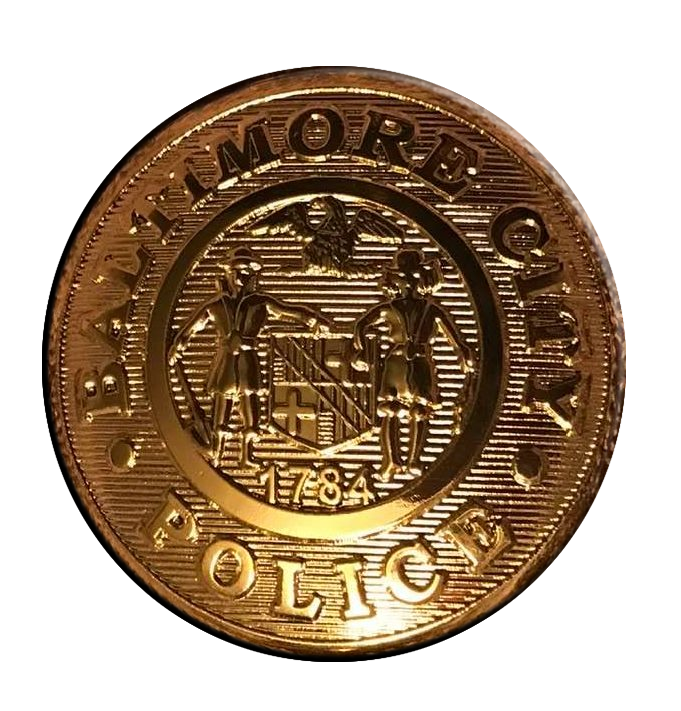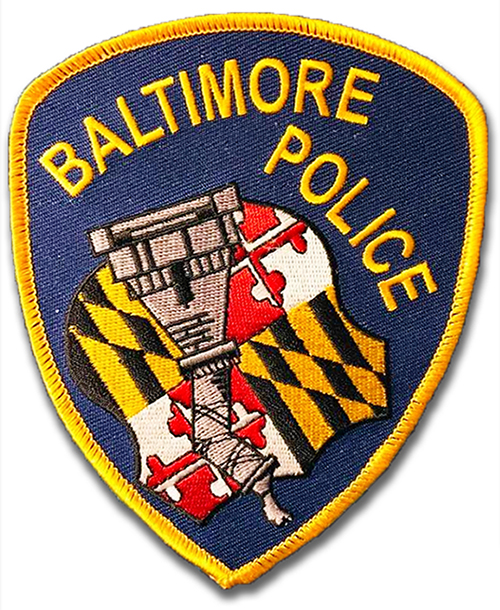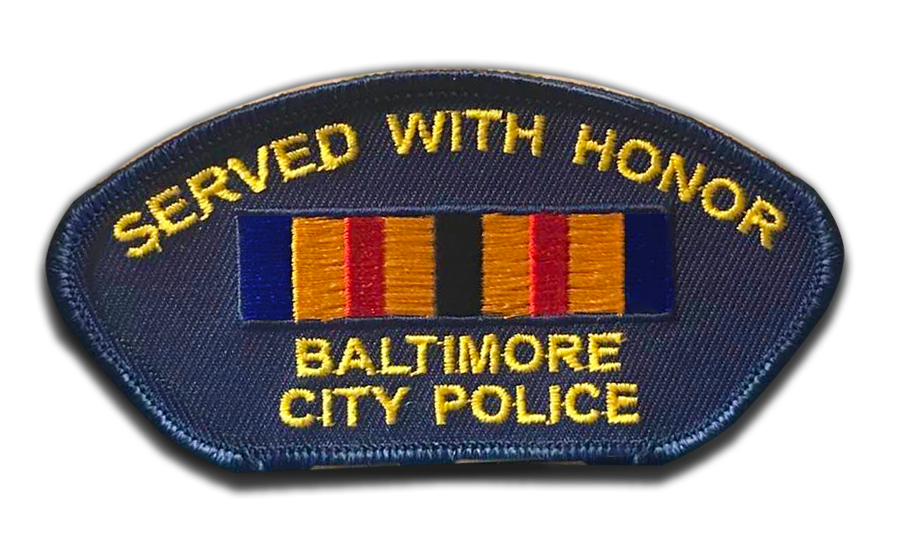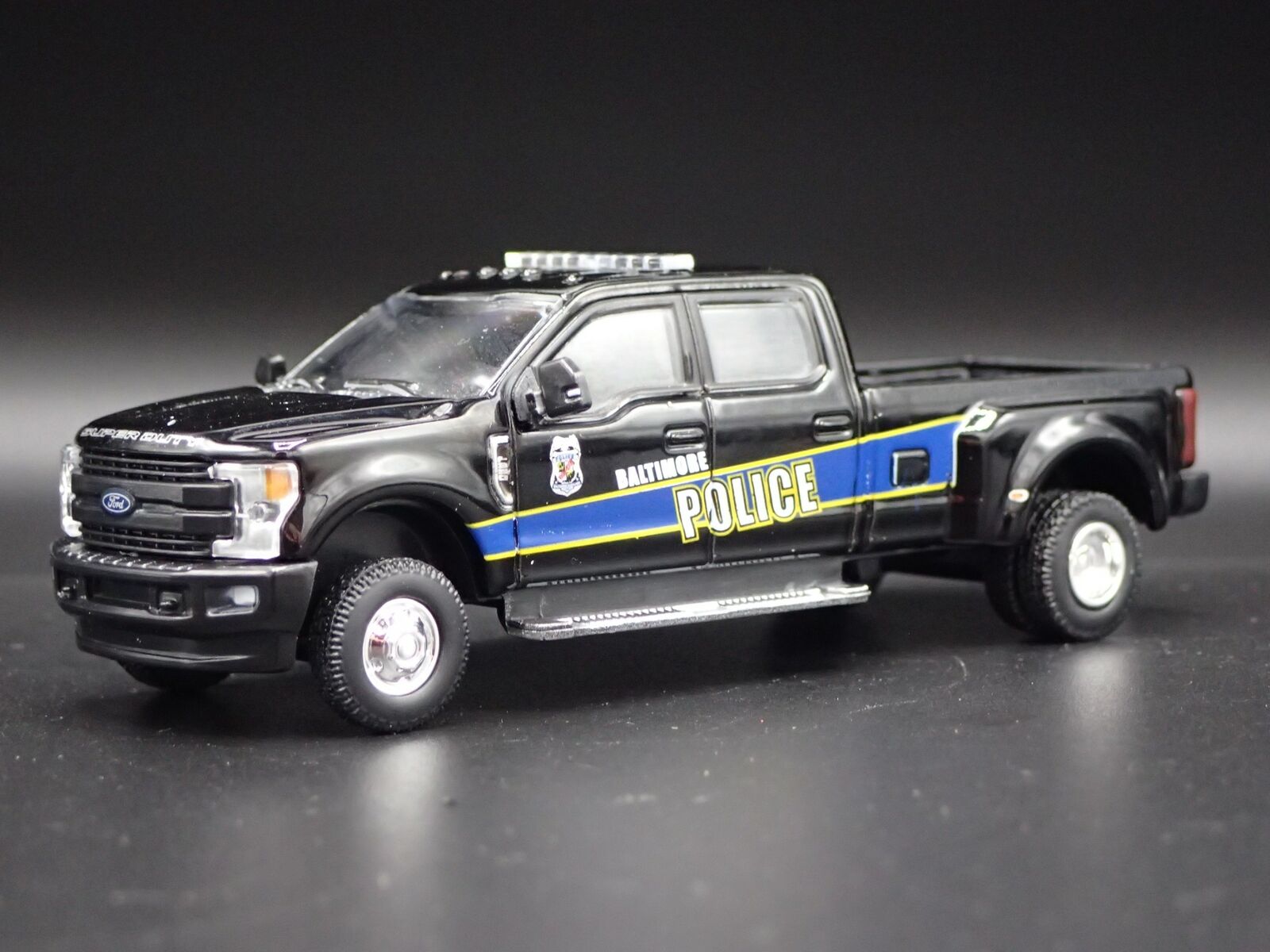An incident that brought out the abilities of the Baltimore police force was received during the railroad riots of July 1877. Abilities making Baltimore’s police shine. Monday, July 16, 1877, the Firemen of B&O Railroad’s freight engine team left their jobs. It was a time when the people of this city had lost their heads when the policemen in Baltimore, under the leadership of Deputy Marshal Jacob Frey, remained cool, they were brave, and they were strong-minded. A strike was brought about by the Firemen of the Baltimore & Ohio Railroad’s freight engine team. A strike that was brought about after a 10% reduction was taken from their wage. These men demanded that well before the cuts, they were working at a pauper’s wage, but that with the cuts, they could not afford to live the life of a vagrant. The Railroad, however, declared that a downward spiral in the overall business interests of the country had compelled the pay cuts and made them unable to pay a higher wage. It was the beginning of strong unions.
The B&O Railroad Riots 1877
An incident that brought out the abilities of the Baltimore police force was received during the railroad riots of July 1877. Abilities making Baltimore’s police shine. Monday, July 16, 1877, the Firemen of B&O Railroad’s freight engine team left their jobs. It was a time when the people of this city had lost their heads when the policemen in Baltimore, under the leadership of Deputy Marshal Jacob Frey, remained cool, they were brave, and they were strong-minded. A strike was brought about by the Firemen of the Baltimore & Ohio Railroad’s freight engine team. A strike that was brought about after a 10% reduction was taken from their wage. These men demanded that well before the cuts, they were working at a pauper’s wage, but that with the cuts, they could not afford to live the life of a vagrant. The Railroad, however, declared that a downward spiral in the overall business interests of the country had compelled the pay cuts and made them unable to pay a higher wage. It was the beginning of strong unions.
There were about one hundred of them at first. In many instances, they went out on their trains a few miles from the city, and when the engines stopped to take coal, they left their places, refusing to go any farther. At first, the strike seemed easy to manage, but as the first day wore on and news came that the trouble had reached Martinsburg, further that the militia had been called out, things became more serious. The police were promptly on hand. They were stationed in twos and threes at various points between Baltimore, the relay house, and a squad of twelve that were at Camden Junction.
Like many times of tension in the city of Baltimore, both before this riot and in many riots since, the first day passed rather quietly, although in this case few of the freight trains left the city. On the second day, however, 17 July 1877 [Tuesday], the excitement began. A freight train of eighteen loaded cars from the west, bound for Locust Point, was partly wrecked by means of a misplaced switch at a trestle near the foot of Leaden Hall Street, Spring Garden; the engine and several cars were thrown into a gully. News arrived of a fight at Martinsburg, in which two firemen were shot. At first light, the employees of the Baltimore and Ohio Company held a meeting; they decided to support the strikers, but first they would try seeking conciliation with the company.
The conciliation failed, and the strike went on. It was Wednesday, [18 July 1877], the third day of troubles for B&O. The West Virginia authorities called on President Hayes for troops, and a proclamation was issued at once by the President. Troops were promptly sent. Of course, all this had its effect in Baltimore, but on that day, there were no hostile demonstrations here. The freight business amounted practically to nothing, but the passenger trains arrived and departed as usual.
The company decided not to recede from its position, and a reward of $500 was offered by it for the arrest of the person or persons who caused the Spring Garden wreck. On the fourth day [19 July 1877], the troubles continued in Martinsburg, but there was no outbreak here in Baltimore. It would take nearly five days for any excitement to take place here. But when it arrived, Baltimore was more excited than it had been since the war.
About 3 o'clock in the afternoon of Friday, when the news had been received that the strike at Cumberland threatened to assume general proportions, Governor Carroll held a consultation with the officers of the Baltimore and Ohio Company and became convinced that the presence of the military at Cumberland was necessary for the preservation of peace and order. A half hour later he issued an order to Brigadier-General Herbert, commanding the First Brigade, M. N. G., ordering him to proceed to Cumberland. Simultaneously, he issued a proclamation calling upon the rioters to desist. Soon afterward, General Herbert held another consultation with Governor Carroll to consider whether the military should be summoned to their respective armories by a "military call" from the bells. Governor Carroll objected to this, and General Herbert tried to get the men at the armories by the ordinary means, but not succeeding very well, and again asked the Governor that the bells be rung. This was done, and a great misfortune was proven.
At twenty minutes to 6:00 the call was sound from the fire bells at City Hall. The people knew what it meant, and in a very short time, the streets around the armories were filled with men and boys of all ages who sympathized with the strikers. It was about the time that the work in the factories was over, and all the workmen helped to swell the crowds. In front of the armory of the Sixth Regiment, at Fayette and Front streets, the mob numbered at least 2,000. Strangely enough, the officers of the regiment sent word to the police headquarters, asking that policemen be sent to clear the way so that the regiment could march on to Camden station.
The old system then in vogue scattered the policemen so that not enough of them could be collected in time for the work, and in two hours the crowd was so large that no force was able to handle it.
The troubles at the Sixth Regiment Armory began at about seven o'clock. A brickbat was thrown into one of the windows.
Four policemen—Officers Albert Whitely, James Jamison, Oliver Kenly, and Roberts—were stationed at the door, and in spite of the volleys of stones, missiles, and jeers that followed, they manfully stood their dangerous guard, although the four militiamen who had been with the policemen had been called in. The hour set for marching was 8:15 o'clock, and the crowd had become maddened and aggressive. The companies, however, de-stemmed to pass the rioters. When they appeared on the street, there was a riot so general that it drove the men back again into the building. 'The next time they came out, they had orders to fire. The first company fired high, but the attack became so heavy on the following companies that they discharged their weapons into the crowd. From that instant all along the march to Camden station, the firing was continuous and general, resulting in the killing of about a dozen people and the serious wounding of as many others.
The Fifth Regiment did not use its guns, although it was severely attacked and had every provocation to fire. The men marched admirably through showers of stones and other missiles. There were 250 of them. At the junction of Camden and Eutaw streets, a solid mass of rough-looking men blocked their passage. They halted for a moment, and although the bricks were falling fast, Captain Zollinger counseled his men not to fire.
Then he ordered them to prepare to double-quick with their fixed bayonets into the depot. Drawing his sword, Captain Zollinger shouted to the mob to give way so that the command might pass. A brawny man opposed the Captain, who promptly knocked him down, and amid the hoots and yells, came several shots from the
Crowd; inviting the regiment to charge the depot. Soon after the regiment had reached the station, the building was set to fire. The rioters attempted to interfere with the firemen, but fortunately, their attempts had failed, and the flames were reduced to embers and then to ashes.
The fearless service of the police during these rebel rousing times has never been properly recognized bar a few brief passages in the newspapers. In every instance, they owed the mob, while the soldiers exasperated the situation.
One policeman was equal to a dozen soldiers. Until long after midnight, the police protected the military and guarded all the depot buildings. It was our police who protected the firemen, their engines, and the hoses they used, and therefore, it was our police who saved the buildings. They were fired upon by the mob, and some were wounded, but they wounded a number of the mob in return, and in addition, they made many arrests.
The result of this great excitement was that the order sending the soldiers to Cumberland was withdrawn, and a proclamation to that effect was issued by Mayor Latrobe.
During these days, the efficiency of the police department was tested and proven. Deputy-Marshal Jacob Frey had command of and around Camden station. While for nearly seventy hours he went without sleep, as he single-handedly maintained control of the mob. Long before any of his officers could assemble, on that Friday and prior to the arrival of the military, Frey had cleared the platform and front pavement of several hundred excited and unruly men. But, when reinforcements arrived, and without hesitation, Deputy-Marshal Frey waded into that crowd, where he in short order arrested two of the agitators. Without incident, they were taken into his custody and transported to the Southern District Station House, where Frey himself booked the pair.
On Saturday night, crowds again collected around Camden station. About 9 p.m., a fire alarm excited the rioters so that they rushed towards the lines that the police had formed. Shots were fired by the rioters, and'several officers fell wounded. Then it was that Deputy-Marshal Frey told the men to keep steady, and a moment afterward, their pistols being drawn, the command of "Take aim-fire" was given. They fired low, and as they fired, they rushed forward, and each officer grabbed a prisoner. Fifty arrests were made; several men were killed and a number wounded. There was another outbreak at 11 o'clock, and fifty-three more arrests were made. On Sunday morning, large crowds again collected around the Camden Station, and they were closely pressing upon the picket lines of the Fifth Regiment. Deputy-Marshal Frey, not liking the looks of things, sent for a squad of twenty policemen. When they arrived, the Deputy Marshal took charge of them in person. He told the crowd that he was going to "clear that street," and he advised all peaceably disposed of persons to go home. Many of them did so, but many others remained. Turning to his men, the Marshal gave orders to "forward," and in a very short time, the rioters were driven away. They knew the Deputy Marshal, and they were afraid of him.
When the riot had assumed such threatening proportions, every effort was made to protect the city. United States soldiers from New York and other cities were promptly ordered to Baltimore. General W. S. Hancock arrived with eight companies of troops from New York Harbor and two war vessels with 560 men, fully equipped, anchored in the Patapsco. Several hundred special policemen were sworn in by the police board. Among them were such well-known citizens as William M. Pegram, Alexander M. Green, C. Morton Stewart, Frank Frick, E. Wyatt Blanchard, James H. Barney, J. L. Hoffman, Robert G. Hoffman, W. Gilmore Hoffman, John Donnell Smith, William A. Fisher, Frederick Von Kapff, and Washington B. Hanson. They were supplied with regular badges, and they did good work. The regular policemen were unfaltering in their duty, and most of them did not sleep during more than fifty hours. The great show of strength by the police and troops overawed the rioters, and the troubles were gradually quiet. The following Saturday freight trains, each guarded by ten soldiers, moved out on the road.
The strikes in other cities continued, more or less, but within two weeks they were over. Trouble on the Northern Central Road was happily averted. The jury of inquest, which sat upon the man killed by the Sixth Regiment, was very thorough in its investigations, and after several days consumed in taking testimony, it rendered a verdict that found the rioters guilty of the troubles but charged the regiment with shooting too hastily and too indiscriminately. It found fault because there were not more policemen on hand around the armory. This, however, was purely the fault of the military authorities for not giving sufficient notice to the Marshal. The part that the police force took in the memorable conflict will·ever stand as a monument to its courage and efficiency.
 Something About Tramps
Something About Tramps
4 August 1877


Click HERE or on the article above to see the full-size article
Audio of the above article can be found by clicking HERE

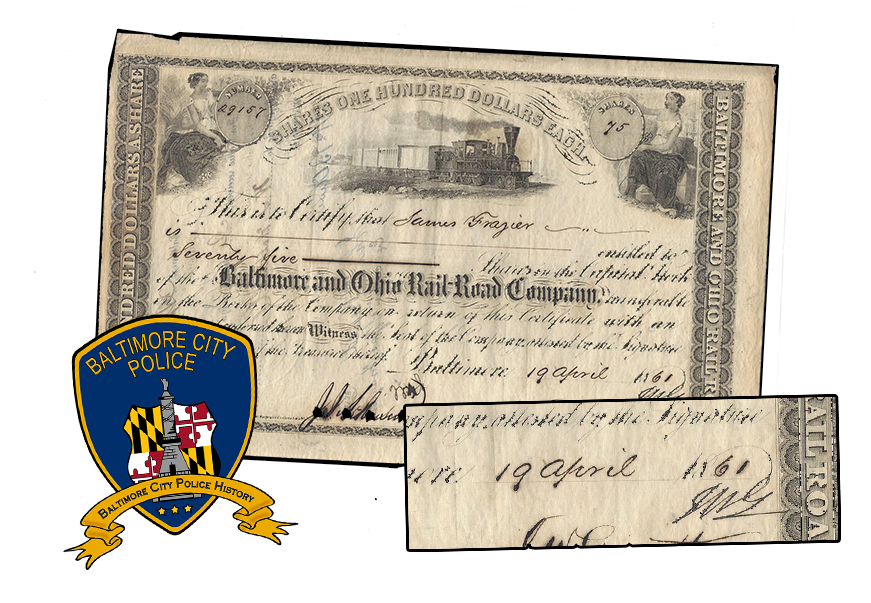

Donations
Donations help with web hosting, stamps and materials and the cost of keeping the website online. Thank you so much for helping BCPH.


POLICE INFORMATION
If you have copies of: your Baltimore Police Department Class Photo, Pictures of our Officers, Vehicles, Equipment, Newspaper Articles relating to our department and or officers, Old Departmental Newsletters, Lookouts, Wanted Posters, and or Brochures. Information on Deceased Officers and anything that may help Preserve the History and Proud Traditions of this agency. Please contact Retired Detective Kenny Driscoll.
This email address is being protected from spambots. You need JavaScript enabled to view it.

NOTICE
How to Dispose of Old Police Items
Please contact Det. Ret. Kenny Driscoll if you have any pictures of you or your family members and wish them remembered here on this tribute site to Honor the fine men and women who have served with Honor and Distinction at the Baltimore Police Department. Anyone with information, photographs, memorabilia, or other "Baltimore City Police" items can contact Ret. Det. Kenny Driscoll at This email address is being protected from spambots. You need JavaScript enabled to view it. follow us on Twitter @BaltoPoliceHist or like us on Facebook or mail pics to 8138 Dundalk Ave. Baltimore Md. 21222
Copyright © 2002 Baltimore City Police History - Ret Det Kenny Driscoll
You May Like

